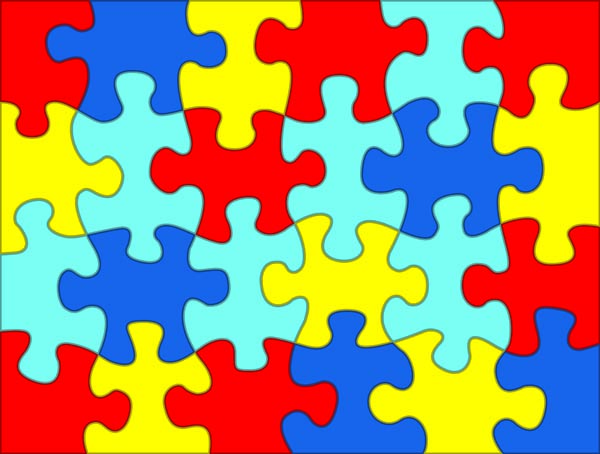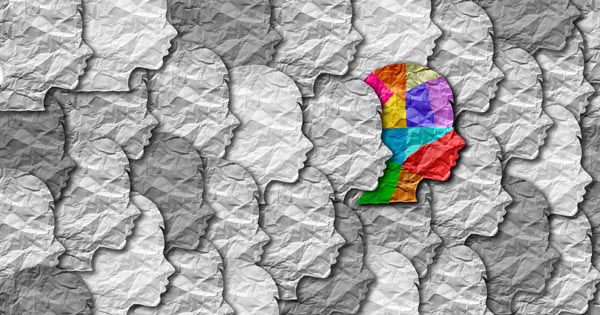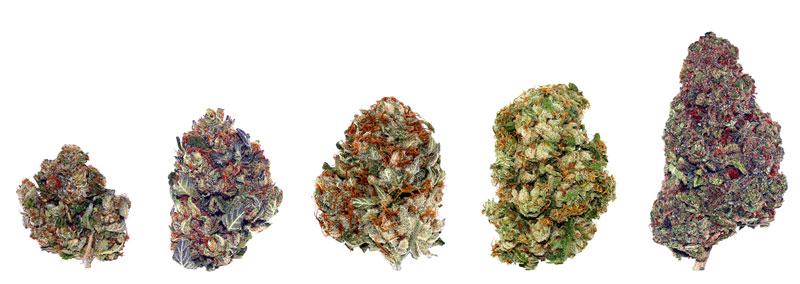Autism
Watching your child suffer is one of the worst things a parent can go through. This is especially true when it seems as though the rest of the world simply believes that your child is not well behaved.

As an adult, autism can make you feel alone, isolated, anxious and misunderstood.
Thanks to modern medicine, we have a better understanding of autism and how its various symptoms can affect people but we are still a long way from knowing what exactly causes the ailment, as well as developing successful treatment methods to help those suffering from it.
While some adults and children have found partial relief from their symptoms through the use of prescription medications, others say that the side effects of these medications are as bad as the symptoms or that the medications simply do not work effectively for them at all.
This has left many patients who are trying to cope with treating the symptoms of their autism spectrum disorder to seek out alternative therapy options like medical cannabis.
Our goal here at Kanteeva is to provide you with the information that you will need to make an educated decision as to whether medical cannabis may be an option to help you or a loved one find relief from the symptoms of autism spectrum disorder (ADS).
After reading this article, you should be able to decide if medical cannabis is an option you would like to pursue and you will have a solid foundation of knowledge so you can effectively discuss your medical cannabis therapy options with your healthcare provider(s).
If you have any additional questions after reading this article, please do not hesitate to leave a comment or question below. A member of the Kanteeva team will respond back to you as soon as possible.
What is Autism Spectrum Disorder?

According to the National Institute of Mental Health, autism spectrum disorder, or ASD, is a:
developmental disorder that affects communication and behavior. Although autism can be diagnosed at any age, it is said to be a ‘developmental disorder’ because symptoms generally appear in the first two years of life.
While this may sound like a very simple definition, if you or a loved one suffers from autism spectrum disorder, then you most likely are already aware of just how complicated this ailment can truly be.
There are more people than ever before being diagnosed with autism spectrum disorder.
According to the World Health Organization, one in 160 children have an autism spectrum disorder.
Modern medicine does not know exactly what causes autism spectrum disorder but it is believed to be the result of a combination of genetic and environmental influences, according to autismspeaks.org.
Fortunately, we do know more about autism spectrum disorder now than we ever have before. Autism spectrum disorder begins in childhood and tends to persist even into adolescence and adulthood. Many people with autism spectrum disorder can live independent lives as adults, while others will require lifelong assistance, care and support.
Coping with the symptoms associated with autism spectrum disorder is the key for those who suffer from the ailment to be able to live as independently as possible.
This can become challenging for patients because even obtaining a diagnosis can feel like an overwhelming and confusing process.
This is because the process to diagnose autism spectrum disorder changed significantly in 2013.
Before 2013, there were 5 different “autism spectrum disorders,” with most diagnoses falling under 3 categories that included:
Autistic Disorder
This was often referred to as “classic autism.” People with autistic disorder usually have significant language delays, social communication challenges and unusual behaviors and interests. Many people with autistic disorder also suffer from having an intellectual disability.
Asperger Syndrome
People with Asperger syndrome normally have milder symptoms of autistic disorder. They may still have a few social challenges and unusual behaviors and interests. They typically do not have too many problems with language development or intellectual disabilities.
Pervasive Developmental Disorder (Not Otherwise Specified)
This was what was frequently referred to as “atypical autism,” also known as PDD-NOS. This is somewhat of an umbrella diagnosis that covers people who meet some of the criteria for autism disorder or Asperger syndrome but not all of them. Typically, people suffering from PDD-NOS have fewer and milder symptoms than those diagnosed with autistic disorder or Asperger syndrome. Some of the symptoms may cause only social and communication challenges without presenting problems with language development or intellectual ability.
It was challenging and complicated for many people including healthcare providers to understand the differences among these subcategories of autism spectrum disorder. As a result of this, the American Psychiatric Association attempted to make things easier to understand and has combined the different autism disorders into a single diagnosis called “autism spectrum disorder.”
Even though the classification has become simpler, sadly the understanding of autism spectrum disorder is still something that most of society struggles with.
How is Autism Spectrum Disorder Diagnosed?

Obtaining an actual diagnosis for autism spectrum disorder can be a challenging and difficult experience. Unfortunately, there is no medical test like a blood test or x-ray that can diagnose autism spectrum disorder.
In children, autism spectrum disorder can occasionally be detected at 18 months or younger. Some studies have even shown that a reliable diagnosis can often be given as early as 14 months. The common guidelines state that by age 2, a diagnosis by an experienced healthcare provider who has significant experience with autism spectrum disorder can be considered reliable.
While many people diagnosed with autism spectrum disorder receive their diagnosis as children, there are some who do not receive a final diagnosis until they’re teenagers or rarely, once they are already adults.
The difference between the ages of diagnosis is primarily because autism spectrum disorder can be very challenging to diagnose effectively. As mentioned above, there is no medical test to determine a concrete diagnosis.
Instead, autism spectrum disorder diagnosis takes two steps that include developmental screening and comprehensive diagnostic evaluation, according to the CDC.
While the screening process can be painstaking and complex, the treatment options available for autism spectrum disorder often feel even more complicated than the initial diagnosis.
How is Autism Currently Treated?

Most important thing to consider when trying to relieve some of the symptoms associated with autism spectrum disorder is that every person who suffers from autism spectrum disorder has their own unique symptoms.
Since every individual has their own unique symptoms, every individual has their own unique set of complications that may range from sensory issues to emotional difficulties, language difficulties and difficulty socializing with others.
Treatment must be tailored specifically to each individual since austism spectrum disorder effects everyone very differently causing a wide range of potential symptoms and complications.
Most commonly, treatment options are geared toward building communication skills and utilizing therapy options like occupational therapy and sensory integration therapy.
What Medications are Available for Autism Spectrum Disorder?

It is important to remember that there is no cure for autism spectrum disorder. Presently, there are no medications specifically designed for treating the ailment either.
Typically, medications are only given as a last resort and most medications target related symptoms and not autism spectrum disorder.
While some medications may help with related symptoms like insomnia, trouble focusing, anxiety, depression and seizures, there is only one medication that has even been approved by the FDA for children with autism spectrum disorder. The medication is known as Risperdal (Risperidone) and may be prescribed to assist children with autism spectrum disorder to better manage irritability.
In some cases, healthcare providers may also prescribe medications like serotonin reuptake inhibitors (SSRIs) and stimulants like those given for ADD or ADHD.
Sadly, parents of children suffering from autism spectrum disorder, as well as older teenagers and adults with the ailment, frequently report that the medications prescribed leave them feeling sedated and not like themselves.
Parents often report that the side effects of these medications is comparable to changing the personality of their child and leaving them “like a zombie.”
While research is still underway that is designed to help people suffering from autism spectrum disorder find relief from some of its many symptoms, there is still a long way to go. One topic that has been coming up more frequently in recent years is alternative treatments and whether medical cannabis may be an option for those suffering from autism spectrum disorder.
Can Medical Cannabis Help Treat Autism Spectrum Disorder?
I gave him the first dose and it was like a miracle. It’s a game changer. It gave us quality of life.
Watch the full interview below:
 There is still research that needs to be completed before we truly understand how medical cannabis can help treat the symptoms of autism spectrum disorder. Some research has been conducted with significant progress in recent years, but there is still a long road ahead before modern medicine fully understands cannabis and its medical properties.
There is still research that needs to be completed before we truly understand how medical cannabis can help treat the symptoms of autism spectrum disorder. Some research has been conducted with significant progress in recent years, but there is still a long road ahead before modern medicine fully understands cannabis and its medical properties.
While we wait for research to catch up, there are many cases of anecdotal evidence available from both parents of children with autism spectrum disorder and adults who suffer from the condition who have successfully used medical cannabis to treat some of their many symptoms.
There are thousands of different stories available online from people claiming that medical cannabis has helped their children have fewer seizures and have better control over some of their more awkward social behaviors.
However, what may surprise you is just how much media attention medical cannabis has been gaining due to its association with helping to successfully treat some of the symptoms associated with autism spectrum disorder.
For example, an article titled “Marijuana may be a miracle treatment for children with autism,” was published by USA Today in 2017 and featured a story about the progress being made in an Israeli study that was conducted on the beneficial effects that medical cannabis can have for those suffering from autism spectrum disorder.
Another example is the 2018 article published by Newsweek titled “Is marijuana the world’s most effective treatment for autism?” This article followed a 4-year-old named Benjamin and his mother Sharon as they began a journey with medical cannabis for some of his symptoms associated with autism spectrum disorder. The article stated, “within months, he was doing so well that his teachers recommended he leave the special needs school for a standard classroom.” It went on to quote Sharon as saying “it’s like a miracle. I can leave the house and go out with him and not worry, I can breathe.”
As mentioned before, there is quite a bit of anecdotal evidence available but the important question that many parents have is what science has to say about using medical cannabis to help treat the symptoms of autism spectrum disorder.
What Does Science Say about Medical Cannabis and Autism Spectrum Disorder?

As we briefly mentioned above, there is still a significant amount of research that needs to be conducted on the effects of medical cannabis when used for treating some of the symptoms of autism spectrum disorder.
However, the research already completed shows significant promise for those suffering from the ailment.
One study published in 2019 used a high CBD strain of cannabis with a CBD to THC ratios of 20:1 and stated:
Cannabis as a treatment for autism spectrum disorders patients appears to be well-tolerated, safe and seemingly effective option to relieve symptoms, mainly: seizures, tics, depression, restlessness and rage attacks. The compliance with the treatment regimen appears to be high with less than 15% stopping the treatment at six months follow-up. Overall, more than 80% of the parents reported at significant or moderate improvement in the child global assessment.
Results like these are not unique to a single study either. Another study from 2018 published on Neurology.org concluded:
This preliminary study supports the feasibility of CBD based medical cannabis as a promising treatment option for refractory behavioral problems in children with ASD,” and also showed that “high CBD cannabis was effective with helping symptoms like behavioral outbreaks, anxiety, communication problems and disruptive behaviors.”
It is important to note that this study also used a cannabis strain that had a CBD to THC ratio of 20:1.
One final study published in 2019 concluded that:
We found lower serum levels of AEA, PEA, and OEA in children with ASD. Further studies are needed to determine whether circulating endocannabinoid levels can be used as stratification biomarkers that identify clinically significant subgroups within the autism spectrum and if they reflect lower endocannabinoid “tone” in the brain, as found in animal models of ASD.
This study showed lower levels of present cannabinoids which could possibly mean that there may be a connection between autism spectrum disorder and Clinical Endocannabinoid Deficiency (CED). More research is needed before any link between the two can be made definitively but the initial results are certainly something to ponder, as many other neurological ailments like migraines have been linked to CED.
The Important Takeaway
While it is apparent that more research is needed before final conclusions can be made on how effective medical cannabis may be at treating some of the symptoms of autism spectrum disorder, the existing data and anecdotal evidence presented by parents and those suffering from autism spectrum disorder is promising to say the least.
Ultimately, the decision is up to you but the most important thing you should do is consult with your healthcare provider(s) before beginning any kind of medical cannabis therapy. Even if you are only considering CBD oil, you should still consult with your healthcare provider(s) before adding any medication or therapy options to your autism spectrum disorder treatment plan or the treatment plan of your children.
What are the Best Cannabis Strains for Autism Spectrum Disorder?
While we wait for more research to be conducted, looking at the existing data that is available, we can begin to see a pattern in the type of cannabis strains that are showing the most promise in helping to alleviate the symptoms of autism spectrum disorder.
One important factor that you must also take into consideration is that every individual person will respond to cannabis differently. What works for one person may not be effective for another.
Also, if you are planning to treat a child who suffers from autism spectrum disorder, please take a moment to read our post on who is most at risk when using cannabis, and take extra care to take the time to discuss your options with your healthcare provider(s), as they can give direction on whether medical cannabis is a good fit for your child and what strains they may have had success with when treating other patients.
The positive news when it comes to treating the symptoms of autism spectrum disorder with medical cannabis is that the strains that are recommended all have very low concentrations of THC, the psychoactive cannabinoid contained in cannabis, and have very high concentrations of CBD which is non-psychoactive.
What are the Top Strains for Autism Spectrum Disorder?
We have based these strain recommendations on testimonials from medical cannabis community members, anecdotal research, scientific research and a variety of other factors like accessibility.
Charlotte’s Web
This Sativa Dominant Hybrid strain was specifically developed by the Stanley Brothers to have very high levels of CBD that average around 15% and practically non-existent levels of THC that fall well under 1%. Medical cannabis community members often report this strain as being uplifting and helping to stabilize mood, as well as helping to alleviate seizures and relieve symptoms of anxiety and depression.
ACDC
This 50/50 Hybrid strain that offers low THC content with a very high CBD content. You should be careful using this strain if THC is a concern because it can contain up to 6% THC concentration. It is a popular strain among the medical cannabis community for treating issues like anxiety and other mood disorders, as well as seizures. ACDC has a wide availability because of its overall popularity in both the medical and recreational communities and is a great choice for beginners to cannabis, especially adults.
Avidekel
This Indica Dominant Hybrid strain was also specifically developed to contain very high levels of CBD with very low levels of THC. It was the strain used in a 2019 study that showed 83% of patients had either moderate or significant improvement in their autism spectrum disorder symptoms.
Final Thoughts
 Living with autism spectrum disorder can be extremely isolating due to the symptoms of the ailment and the way that society often perceives those who suffer from it.
Living with autism spectrum disorder can be extremely isolating due to the symptoms of the ailment and the way that society often perceives those who suffer from it.
While more research is needed before we fully understand the role that medical cannabis may be able to play at alleviating some of the symptoms of autism spectrum disorder, the existing data does show promise.
Thousands of people all over the world have found relief from autism spectrum disorder by using medical cannabis.
If you are interested in starting a medical cannabis program for the symptoms of autism spectrum disorder for yourself or a loved one, we strongly suggest that you speak with your healthcare provider(s) and join the Kanteeva community for more helpful information from other patients and practitioners.
We Want to Hear From You
 Have you or a loved one found relief from the symptoms of autism spectrum disorder by using medical cannabis? If you have, we would love to hear from you!
Have you or a loved one found relief from the symptoms of autism spectrum disorder by using medical cannabis? If you have, we would love to hear from you!
Please help us spread the word about the amazing benefits that medical cannabis patients are finding all over the world by becoming part of our community.
With your help, thousands of others could finally find relief too.
Please share your stories, comments and questions below. If you are a medical cannabis patient, please also mention what strain has been effective at helping you find relief from the symptoms of autism spectrum disorder.
Thank you for taking the time to read this Kanteeva article. We look forward to hearing your story soon!
Learn. Share. Connect.
